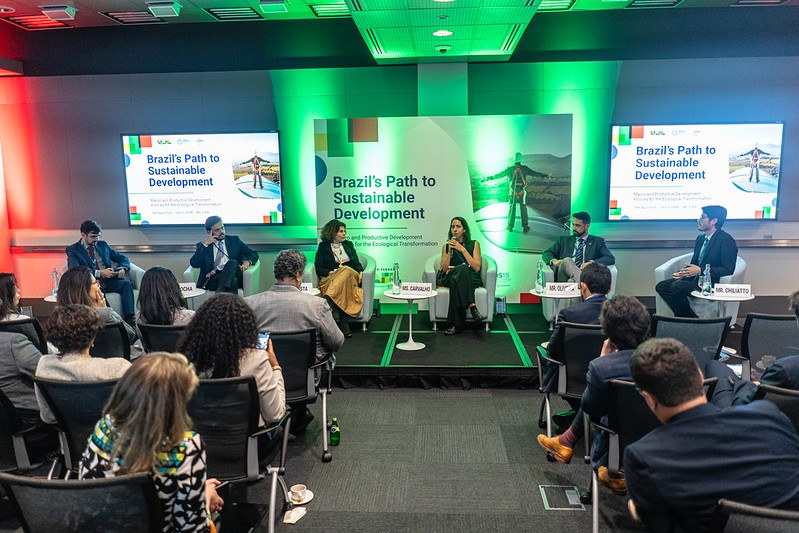The side event at the G20 discusses how transitioning to ecologically sustainable practices can stimulate economic growth
Brazilian authorities unveiled the Ecological Transformation Plan, underscoring its alignment with G20 Brasil priorities. Concurrently, a forum side event delved into the synergy between ecological transformation and the economy, spotlighting their roles in fostering job creation, income generation, and enhancing living standards

The challenges of climate change pose a significant potential to reshape our economy. This perspective guided discussions at the G20 side event titled "Brasil's Path to Sustainable Development," convened during last week's Spring Meetings of the International Monetary Fund (IMF) and World Bank in Washington, United States.
During the event, Guilherme Mello, Secretary of Economic Policy at the Ministry of Finense, unveiled the Brazilian Ecological Transformation Plan, and elaborated on how this "ambitious plan" could serve as a significant asset in reshaping the economy while addressing the challenges of the climate crisis.
“This isn't merely a sector-specific strategy. It encompasses a range of tools, objectives, and focal points converging toward tangible transformation, with impacts on employment, living standards, and infrastructure. It stands as an ambitious initiative. In the realm of sustainable finance, we have already approved the carbon credit market,” stated the Secretary.
According to Ivan Oliveira, Deputy Secretary for Sustainable Development Finance and coordinator of the G20 Sustainable Finance Working Group, the Plan is rooted in addressing the social and environmental challenges of the global landscape. It is also tailored to align with the priorities of the Brazilian presidency within the forum of the world's largest economies.
"Social and environmental concerns form the bedrock of the Ecological Transformation Plan, which also embodies two of the three pillars outlined by Brasil during its G20 presidency. There's a robust link between our domestic efforts and our international proposals," emphasized Oliveira.
Democratizing green funds
Brasil's priority within the G20 to reconfigure dynamics and broaden access for Global South countries to financing for ecological projects was also underscored at the event. "This entails streamlining access to existing resources, increasing the volume of mobilized funds, and formulating mechanisms to attract private investment for ecological transition," clarified Oliveira.
The event titled "Brasil's Path to Sustainable Development" was moderated by Marcos Vinicius Chiliatto, Brasil's representative at the World Bank. Other participants included Igor Rocha from the Federation of Industries of the State of São Paulo (FIESP), Laura Carvalho from the Open Society Foundations (OSF), and Luciana Costa from the Brazilian Development Bank (BNDES).